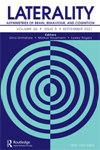纪念1969年阿尔及尔首届泛非文化节
IF 0.9
4区 心理学
Q4 PSYCHOLOGY, EXPERIMENTAL
引用次数: 0
摘要
这次访谈集中在Elaine Mokhtefi和1969年阿尔及尔泛非文化节(PANAF)上,PANAF是她作为阿尔及利亚信息部的一部分组织和参加的,她认为这是一个典型的例子,展示了表演在政治意识形态、激进主义历史和随后对解放时代的怀念之间的力量。它同样是一种试图克服与每个人之间的遥远关系的尝试,反映了口述历史开辟穿越过去的新途径的潜力。这段历史——在节日表演的幌子下谈判的错综复杂的国际关系,在庆祝和团结的非凡事件中达到高潮的全球政治的复杂轨迹——仍然没有得到充分的研究,是第三世界议程、非殖民化的重新排序和资本主义批评的更多“政治”关注的注脚。然而,通过莫赫特菲的证词,以及对档案细节的搜索卷绕,我们可以看到,这个节日并不是奢侈的肤浅提升,而是外交事务中的关键时刻。更重要的是,通过她的个人经历,我们可以追溯女性在这些政治中发挥的核心作用,尽管这些作用往往不被承认。它于2020年编辑,还反驳了在当代应对COVID-19大流行期间大多数文化活动中使用的非必要劳动的贬义标签。本文章由计算机程序翻译,如有差异,请以英文原文为准。
On Remembering Le premier festival culturel panafricain d’Alger 1969
This assembled interview centers both Elaine Mokhtefi and Le premier festival culturel panafricain d’Alger 1969 (PANAF), a festival which she organized and attended as a part of the Algerian Ministry of Information, noting it as an exemplary instance of the power of performance at the nexus of political ideology, activist history, and the subsequent nostalgia for that era of liberation. It is equally an attempt to overcome a distant relationship to each, reflecting on the potential of oral histories to open up new pathways through the past. This history—of entangled international relations negotiated under the guise of a festive performance, a complicated trajectory of global politics which culminated in a remarkable event of celebration and solidarity—remains understudied, a footnote to more “political” concerns of Third World agendas, decolonial reorderings, and capitalist critiques. Yet through Mokhtefi’s testimony, interwoven with searching tendrils of archival detail, we can see that this festival was not a superficial exaltation in extravagance, but a pivotal moment in foreign affairs. More importantly, through her personal history, we can trace the central role that women played in these politics, if often unacknowledged. Edited in 2020, it also counters the pejorative label of non-essential labor applied to most cultural activities during the contemporary pandemic response to COVID-19.
求助全文
通过发布文献求助,成功后即可免费获取论文全文。
去求助
来源期刊

Laterality
Multiple-
CiteScore
3.60
自引率
7.10%
发文量
26
期刊介绍:
Laterality: Asymmetries of Body, Brain and Cognition publishes high quality research on all aspects of lateralisation in humans and non-human species. Laterality"s principal interest is in the psychological, behavioural and neurological correlates of lateralisation. The editors will also consider accessible papers from any discipline which can illuminate the general problems of the evolution of biological and neural asymmetry, papers on the cultural, linguistic, artistic and social consequences of lateral asymmetry, and papers on its historical origins and development. The interests of workers in laterality are typically broad.
 求助内容:
求助内容: 应助结果提醒方式:
应助结果提醒方式:


